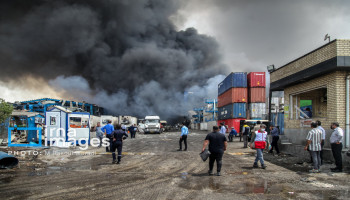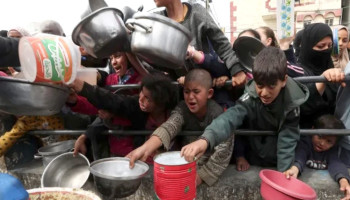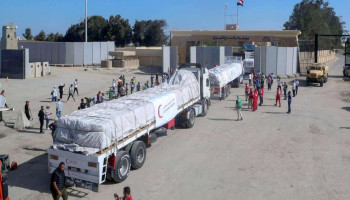The Washington Post reported , Saturday, that in the annals of disastrous revolutions, the popular uprising that swept the Middle East in 2011 now appears to be among the worst. The so-called Arab Spring disrupted tyrannies — a good thing, except when the alternative proves to be chaos.
Now, the Arab Spring has led, by bloody twists and turns, to a nightmare winter along Syria’s border with Turkey. Roughly 1 million homeless Syrians, most of them women and children, are suffering in bitter cold as Turkey battles a toxic alliance for control of its Syrian frontier. The chaos has brought NATO to the brink with Russia and threatens to renew the refugee crisis that has stretched the European Union to the breaking point.
The editor went on saying the grinding war has displaced more than half the country’s population. Some 3.5 million refugees are in Turkey, straining that nation’s resources. Millions more fanned out through Europe, sparking a backlash of anti-immigrant nationalism. Assad is now battling Turkish-backed rebels in their last strongholds, the Idlib province and parts of Aleppo in northwestern Syria.
Since the start of the offensive in December, indiscriminate bombing and shelling have wreaked appalling havoc. The United Nations reports: “More people have been displaced into a smaller area within a shorter period of time than ever before, with nowhere else to flee. The risk to civilians from the violence is extreme, as international laws and norms are disregarded, at the same time as cold weather and economic stresses affect them. Many people have fled with nothing, unable to bring even basic supplies with them . . . others fled with everything they had, attempting to bring as much as possible because they do not expect to be able to return to their homes. Humanitarian workers and other service providers are themselves being displaced, and facilities and supplies worth millions of dollars have been lost as infrastructure is destroyed.”
Last week, Turkey, a NATO member, blamed Russia for an attack that killed at least 33 Turkish troops, further raising the stakes of this disaster. Vladimir Putin responded by sending warships from his Black Sea fleet steaming along the Turkish coast through the Straits of Bosporus toward Idlib.
The editor explained that the spread of the Corona epidemic may cause a severe reaction in Europe. "If the continent struggled with earlier waves of Syrian refugees, imagine how Europe will react to 1 million impoverished, malnourished immigrants on the move in the midst of a coronavirus pandemic. It’s a xenophobic nationalist’s dream scenario, and a severe threat to the open, cooperative, free-trading ethos of the Brexit-battered European Union."
He added that perhaps now President Trump understands why former Defense Secretary Jim Mattis was so determined to keep US Special Forces in northern Syria as a stabilizing element, and why he resigned over Trump’s decision to pull them out.
"Since 9/11, US presidents have been blundering into the Middle East and blundering to get back out, surging troops, withdrawing troops, drawing red lines only to ignore them later, and cheering the demise of some despots while cozying up to others. We’ve tried everything but strategy," he added.
The Washington Post editor said that the lesson should be that the United States cannot escape the Middle East. It is the crossroads of planet Earth and the brain stem of human culture. Its problems will always press on the world’s agenda, and for the foreseeable future, those problems will be managed, at best — never solved. The disappointment of the Arab Spring naturally makes us want to leave it all behind. But the very failure of the revolution shows why the Middle East is inescapable.
Why America Can’t Escape the Middle East?
الأحد, 01 مارس 2020







